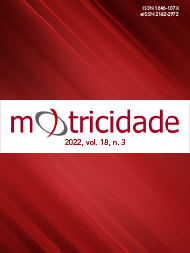Factors associated with perceived quality in Turkish fitness centres: a qualitative perspective
DOI:
https://doi.org/10.6063/motricidade.26620Keywords:
Fitness centres, staff quality, program quality, instructor quality, qualitative methodAbstract
This study aimed to define the general factors affecting the quality of fitness centres from the point of view of the members’ opinions and the relation densities of the features within these factors. The study was carried out using the qualitative method. Data coding was done utilising MAXQDA, a qualitative data analysis program. MAXQDA’s code co-occurrence model feature is employed to visualise code relationships. According to the research findings, the most intense relationship that the factors affecting the staff quality perception of fitness centres have with each other was defined as “Willing to help-Friendliness”. When looking at the results obtained in other factors, codes of “Expertise-Communication” for the quality of the trainer, “Facility Atmosphere-Air conditioning” for the quality of the physical environment, and “Meeting the need-Program variety” for the program quality were associated with each other. Findings from this study provide implications for facility managers who need to closely monitor fitness centres’ physical environment, staff, instructors, program quality and implement remedial measures as needed.
Downloads
Published
Issue
Section
License
The authors of submitted manuscripts must transfer the full copyright to Journal Motricidade / Desafio Singular Editions. Granting copyright permission allows the publication and dissemination of the article in printed or electronic formats and copyrights start at the moment the manuscript is accepted for publication. It also allows Journal Motricidade to use and commercialize the article in terms of licensing, lending or selling its content to indexation/abstracts databases and other entities.
According to the terms of the Creative Commons licence, authors may reproduce a reasonable number of copies for personal or professional purpose but without any economic gains. SHERPA/RoMEO allows authors to post a final digital copy (post-printing version) of the article in their websites or on their institutions' scientific repository.


